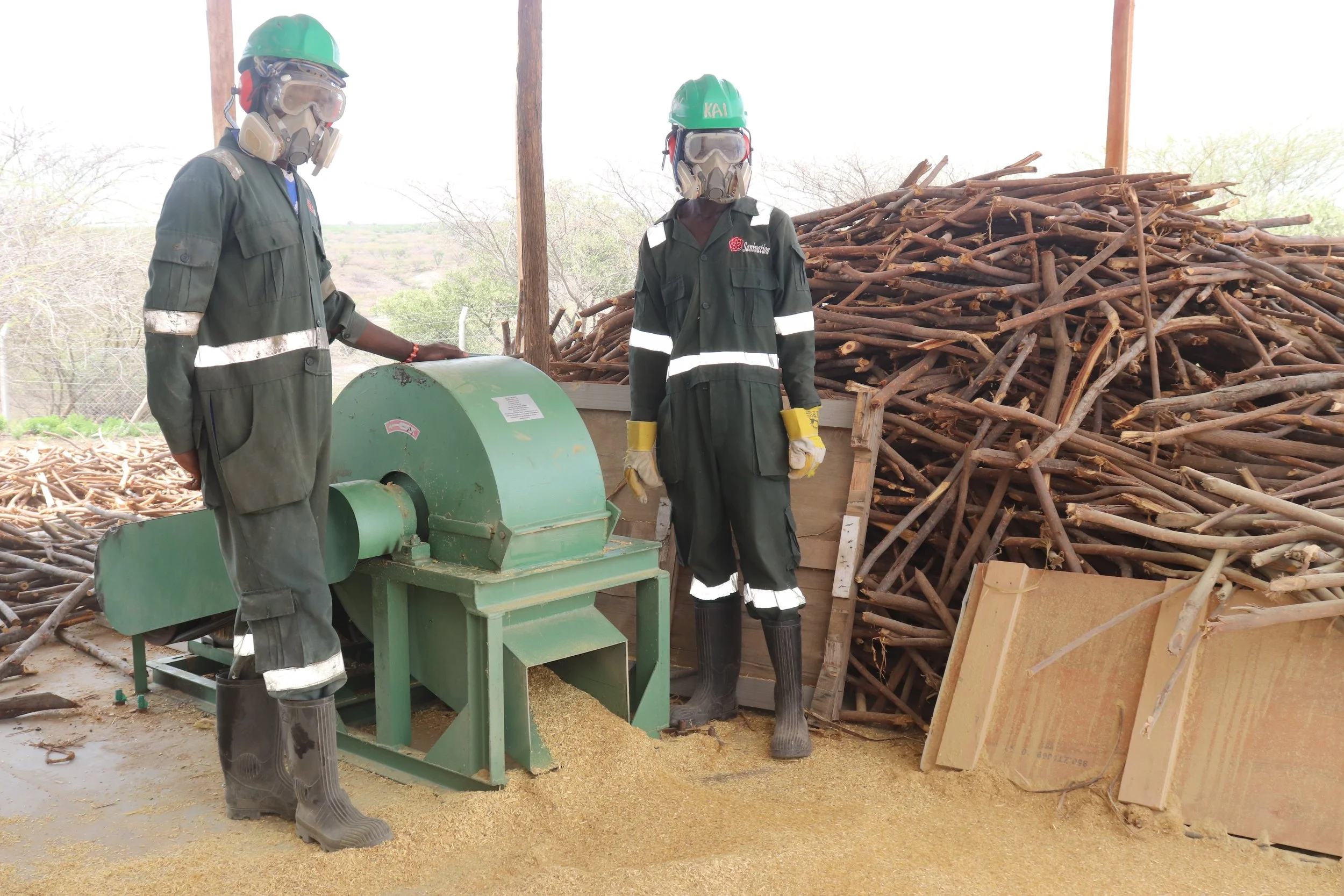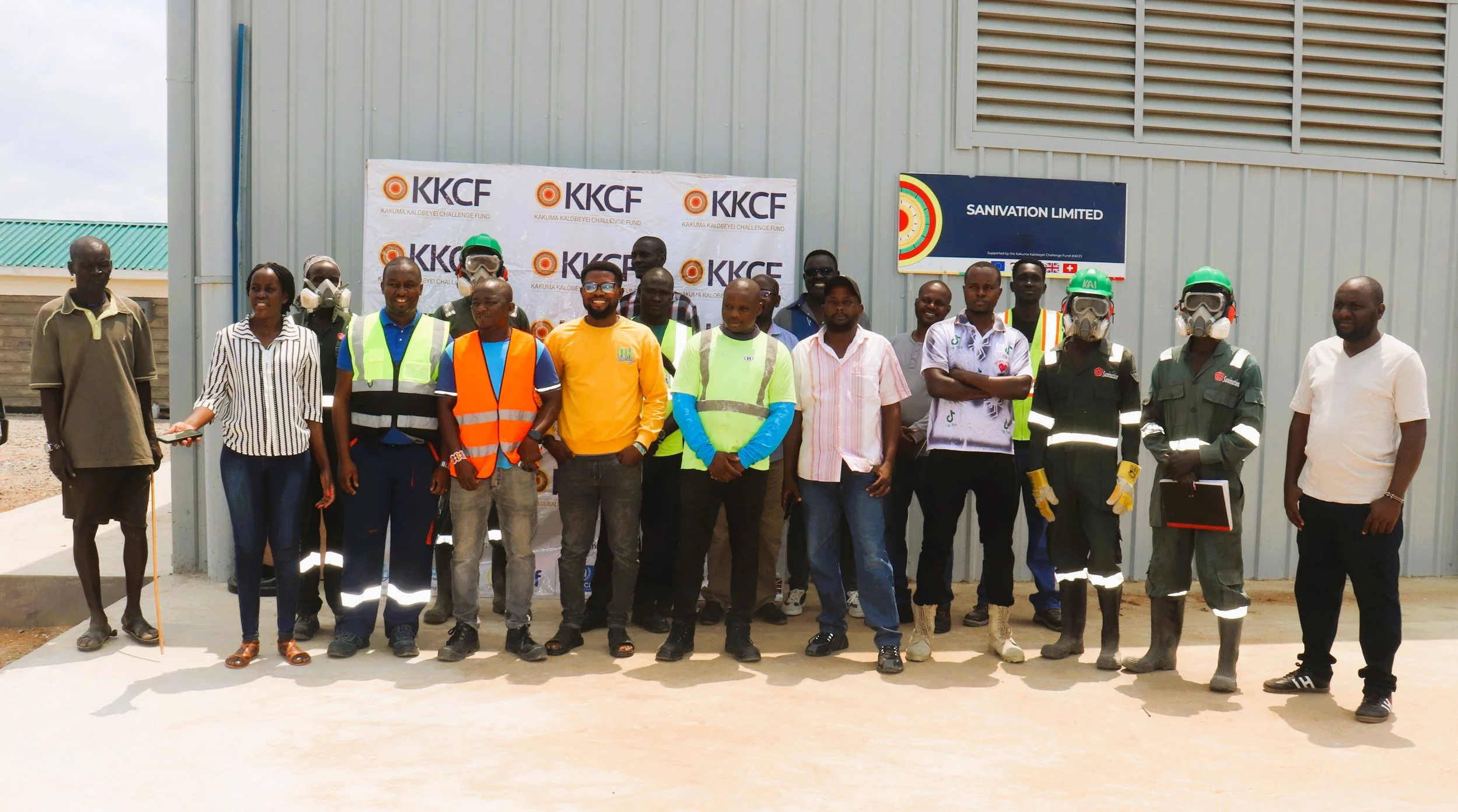Powering Kakuma Sustainably: Women and Communities Driving Change
Prosopis harvesting in Kakuma
Project Overview
In Turkana County’s Kakuma Refugee Camp and Kalobeyei Settlement, over 250,000 refugees and host community members face daily challenges accessing clean energy, safe sanitation, and sustainable livelihoods. Traditional fuels such as firewood and charcoal are becoming increasingly scarce, costly, and environmentally destructive, while diesel-powered waste-to-value facilities continue to burden it with high operational costs and carbon emissions.
To address these challenges, Sanivation, supported by the Africa Enterprise Challenge Fund (AECF), launched the Waste-to-Value Faecal Sludge Treatment Plant (FSTP) in Kakuma in 2023. The project transforms human waste and invasive biomass (Prosopis juliflora, locally known as mathenge) into clean-burning briquettes, offering both a sanitation solution and a sustainable source of energy for institutions such as schools, hotels, and hospitals in Kakuma, Kalobeyei, and as far as Lodwar town.
At its core, the project seeks to provide sustainable sanitation and renewable fuel alternatives while creating local economic opportunities. By supplying reliable and cost-effective sustainable biomass-based energy, the initiative reduces carbon emissions, empowers women and youth through employment, and strengthens local community-based organizations (CBOs) to drive clean energy adoption.
One of the major milestones has been the solarization of the Kakuma Briquette Plant, now powered by a 100KW solar system that significantly reduces diesel dependence, operational costs, and the project’s overall carbon footprint. Alongside this, more than 100 women have found dignified employment harvesting prosopis, turning what was once an environmental threat into a source of livelihood and land restoration. Through active partnerships with local CBOs, Sanivation has further built community ownership of the clean fuel value chain, ensuring that the project’s impact extends beyond production to long-term sustainability.
While the progress is encouraging, the journey has not been without challenges. Seasonal variations affect the consistent supply of Prosopis, and there remains a need for continuous technical support to strengthen CBO operations. Additionally, scaling up solar infrastructure and expanding production capacity will require access to additional financing and investment partnerships.
Refer to the recent Daily Nation’s mention of the project here
Mathenge grinding by Technicians in Kakuma
Key Challenges
While the progress is encouraging, the journey has not been without challenges.
Seasonal variations affect the consistent supply of Prosopis, and there remains a need for continuous technical support to strengthen CBO operations.
Scaling the solar infrastructure and expanding production capacity will require access to additional financing and investment partnerships.
Lessons Learned
These experiences have reinforced 3 key lessons:
Integrating clean energy with waste-to-value systems multiplies environmental and economic benefits;
Empowering local women and CBOs enhances sustainability through capacity development and supply chain strengthening, and builds community trust.
Strategic collaboration with partners such as AECF and UNHCR is critical for scaling climate-smart sanitation and energy solutions in humanitarian settings.
Partner engagement at Project Site
Looking Ahead
Sanivation plans to expand solar capacity and increase briquette production to meet growing demand from institutions in Kakuma and Kalobeyei. In the long term, the goal is to replicate this “waste-to-value plus renewable energy” model in other refugee settlements across Kenya and beyond.
Sanivation welcomes partnerships with development agencies, clean energy investors, and humanitarian organizations to collaborate in scaling these solutions—advancing clean energy access, climate resilience, and dignified livelihoods.
The Kakuma project is a testament to how waste can be turned into opportunity, and how circular economy models can empower communities while protecting the planet.
For more information on this project, and to learn more about our work, please reach out to info@sanivation.com



